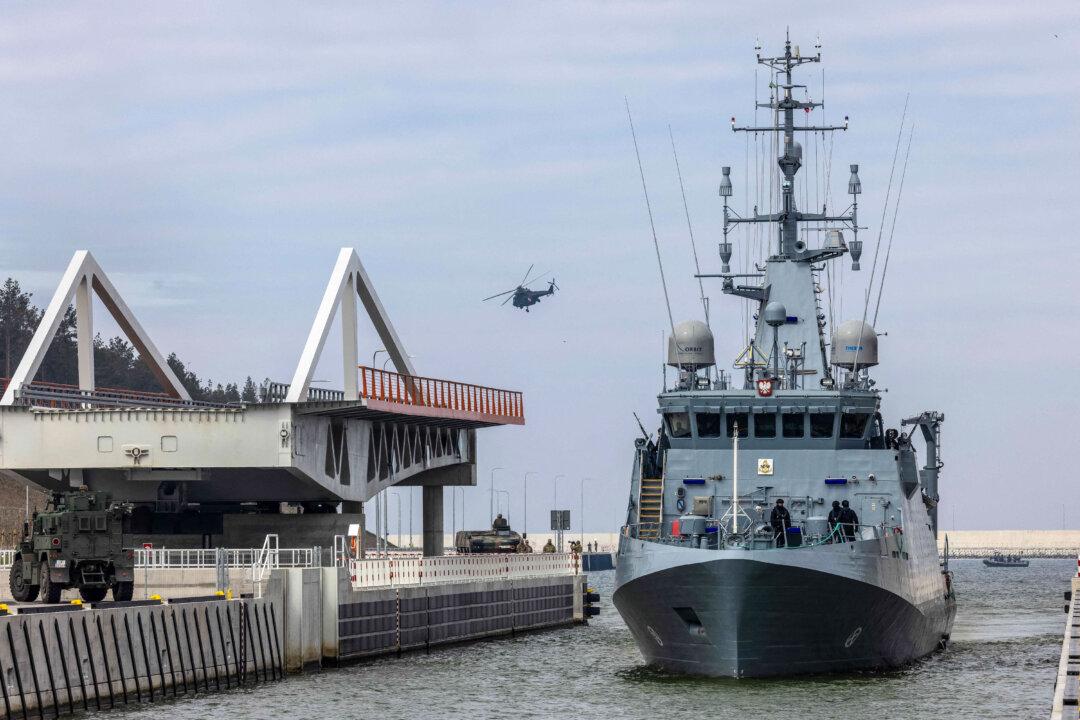The Polish Navy was called into action after a vessel belonging to Moscow’s “shadow fleet” was spotted in suspicious circumstances near a Baltic Sea power cable linking Poland and Sweden, Polish Prime Minister Donald Tusk said on May 21.
Tusk wrote on X: “A Russian ship from the ’shadow fleet' covered by sanctions performed suspicious maneuvers near the power cable connecting Poland with Sweden.





